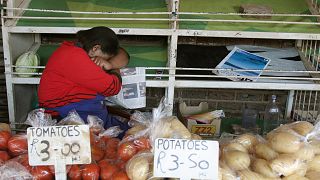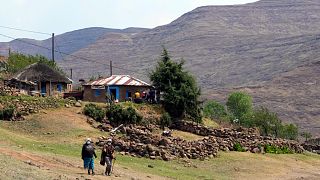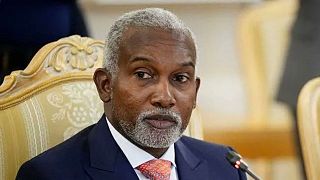Nigeria
Nigeria’s inflation accelerated to 15.6 percent in May, its highest since February 2010, as food, electricity and other energy costs drove up prices in Africa’s largest economy.
Tuesday’s inflation reading was the fourth monthly increase in a row from 13.7 per cent recorded in May.
The Abuja-based National Bureau of Statistics said it reflected higher prices for electricity, transport and food, a separate index for which rose to 14.9 percent from 13.2 percent in April.
Nigeria’s Inflation Hits 15.6 % In May – NBS – https://t.co/hkhmWbolI2 pic.twitter.com/QBBqmuqN8k
— LEADERSHIP Newspaper (@LeadershipNGA) June 14, 2016
Usually Africa’s biggest crude producer, Nigeria has seen revenues plunge with oil prices, with pressure on the naira helping to fuel inflation.
Nigeria imports at least 70 percent of its refined fuel, despite pumping 1.4 million barrels of crude a day, and faces fuel shortages as retailers struggle to get foreign currency to buy the product.
The Central Bank Governor Godwin Emefiele announced on May 24 that the naira’s peg to the dollar would be abandoned in favour of a flexible currency regime but has yet to give details of how the policy will work.
The bank’s de facto peg of 197 naira per dollar had become unsustainable due to a shortage of hard currency, with the naira trading at up to 40 percent below the official rate on the black market.
Analysts say the promised adoption of a new flexible exchange rate policy was likely to push up prices again.
The central bank’s main interest rate was hiked by 100 basis points to 12 percent in March to try to curb galloping inflation.
Nigeria’s economy contracted by 0.4 percent in the first quarter, the first such drop since the 1990s and Emefiele has said it is likely to shrink again in the second quarter, taking Nigeria into recession.













Go to video
Gaza’s scarcity of cash fuels desperation, sparks unusual trade
01:08
Dancehall superstar Shatta Wale urges young people to back President Mahama
01:54
"Great economic potential in Africa": five African leaders have lunch with Trump
Go to video
U.S. slashes visa duration for some African nationals amid policy shift
02:05
WAFCON: Super Falcons fans optimistic about the team's performance